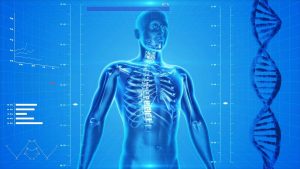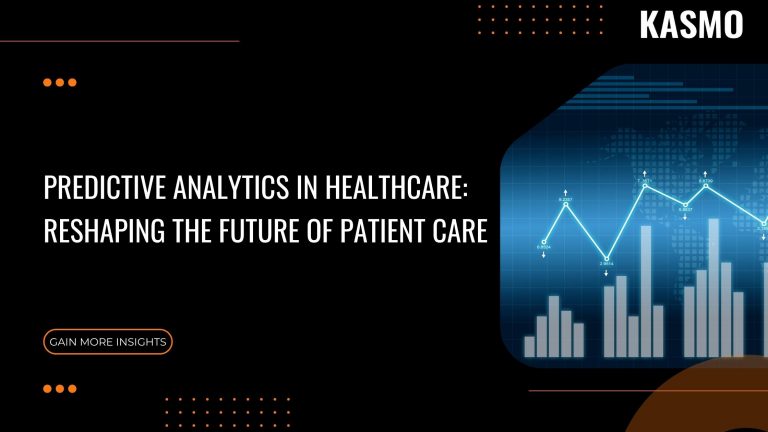As healthcare digital transformation rapidly progresses, Predictive Analytics is increasingly gaining prominence. Predictive analytics is all set to revolutionize the industry and is empowering medical care providers with its evolving capabilities.
Predictive analysis in healthcare helps identify the origins of infections, cure a disease from its roots, and transform how clinics utilize their assets. This article will take a deep dive into predictive analytics in healthcare.
What is the use of Predictive Analytics in Healthcare?
Predictive analytics in healthcare derive outcomes on pre-set medical conditions for a patient. Healthcare organizations utilize predictive analysis to pursue information-driven choices and obtain optimized results.
The advancement of technology has led to the progress of the healthcare industry. Predictive analytics is a type of data analytics businesses use that depends vigorously on techniques. The techniques include data mining, modeling, machine learning, and AI. It assesses evaluation information to make accurate future estimations.
Research done by Diabetes Care shows that predictive analytics for medical services can predict up to ten years for the future or more for senior citizens with diabetes.
Besides, this technology enables medical professionals to seek innovative cures for diseases. Duke University researchers fostered predictive analytics that dissects patients’ EHRs to recognize expected no-shows.

Such studies reveal how Predictive analytics is all set to change healthcare with its plethora of benefits.
What Are the Benefits of Predictive Analytics in Healthcare?
Driven by AI machine learning models, predictive analytics analyze sickness with greater accuracy, decide the best therapy for every patient faster, and do much more.
Here we presented the key benefits of predictive analytics for the healthcare industry:
Improved Patient Care
The main leverage of predictive analytics in the medical care industry is the availability of massive amounts of data. It includes economics, clinical history, demography, and comorbidities. This information furnishes medical specialists with vital knowledge that guides their choices.
In other words, more intelligent information is available for doctors aiding them to make data-driven decisions that lead to, by and large, better patient care.
Advancement in Medicinal Recommendations
Medicines have always dealt with a one-size-fits-all methodology. Similarly, medications have been endorsed because of restricted data with broad population statistics. With predictive analytics, clinical experts can more precisely analyse patients, which can help in the best course of customized treatment for the patient’s overall well-being.
Management of Overall Well Being
Predictive analytics isn’t just relevant to a particular group. Medical services associations can additionally utilize it for a wider patient population.
Predictive analytics presents information about patients’ current circumstances, personal history, meds, and analytics, aiding doctors in discovering similar patients within the same cohort. It can likewise assist in distinguishing individuals with possible disease encounters. Medical professionals can suggest more potent therapies that help patients cure faster.
Recognize Critical Patients
In the healthcare industry, predictive analytics can foresee which patients are at a higher gamble and begin early innervations so it can help them avoid critical problems.
Estimations based on sickness probability and chronic disease can guide medical specialists proactively give care to patients instead of waiting for the patient to visit for a regular checkup.
Other than chronically sick patients, further at-risk groups include old individuals and patients released from the medical clinic after invasive manipulations.
Management of Chronic Diseases
Management of chronic diseases relies upon the capacity of medical services experts to forestall the improvement of these infections and to control them.
Prevention and management of chronic conditions, nonetheless, is a difficult task. Predictive analytics can engage medical services suppliers to pursue reality-based and timely informed choices to give more successful therapies while at affordable costs.
Estimating Equipment Maintenance
The medical services industry can profit from similar prognostics, i.e., the breakdown or degradation of certain machine parts.
For instance, by breaking down the information from sensors in an MRI, predictive analytics can foresee failures and the correct time to replace the component. By knowing such information, clinics can plan upkeep when the machine is not in use, limiting work process disturbance that ruins patients and care teams.
Health and Performance Tracking
The digitalization of healthcare administrations changes how patients and well-being experts cooperate. With the help of gadgets driven by predictive analytics, it becomes simpler to track our well-being and body performance at any point in time from apps. For example, monitoring blood sugar elevation in a diabetic patient can be done anytime in just a few easy steps with a related app on the mobile.
Conclusion
With the advancement of technology, there is immense progress in healthcare and pharmaceutical inventions. The rate at which predictive analytics in healthcare is advancing indicates a promising future where a greater number of lives can be saved faster and with greater accuracy.
Know more about how predictive analytics levels up your healthcare inventions. Email us at sales@kasmo.co to connect with our analytics experts.
Read Next: What is Data bricks?

